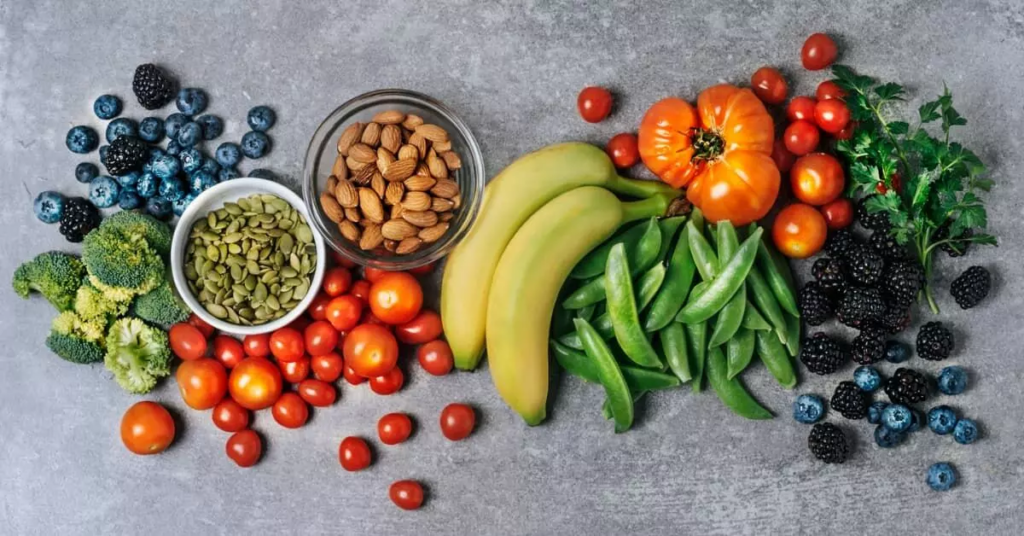
I. Introduction
Maintaining an active lifestyle requires more than just dedication to workouts; it necessitates mindful attention to nutrition. This article delves into the essential nutrition tips for individuals leading active lives, ensuring that the body receives the right fuel for optimal performance, recovery, and overall well-being.
II. Understanding the Role of Nutrition in Fitness
Nutrition as a Foundation
Nutrition serves as the foundation for any fitness journey. It provides the body with the energy, nutrients, and hydration necessary to support physical activity, enhance performance, and aid in the recovery process.
Balancing Macronutrients
A balanced intake of macronutrients – proteins, carbohydrates, and fats – is crucial. Proteins aid in muscle repair and growth, carbohydrates supply energy for workouts, and healthy fats contribute to overall well-being.
III. Pre-Workout Nutrition Strategies
Timing Matters
Eating the right foods at the right time before a workout is key. Consume a balanced meal containing carbohydrates and proteins 2-3 hours before exercise to ensure adequate fuel without discomfort.
Optimal Hydration
Hydration is essential for performance. Drink water throughout the day and consider a small pre-workout beverage containing electrolytes to maintain fluid balance and prevent dehydration.
Simple Carbohydrates for Quick Energy
Including simple carbohydrates in your pre-workout snack provides a quick energy boost. Opt for fruits, energy bars, or a smoothie for easily digestible sources of energy.
IV. During Exercise Hydration and Nutrition
Stay Hydrated
Sip water throughout your workout to stay hydrated. For intense or prolonged exercise, consider sports drinks containing electrolytes to replenish minerals lost through sweat.
Consume Quick Energy Sources
Incorporate easily digestible sources of energy during extended workouts. Energy gels, chews, or small snacks like banana slices can provide a quick energy boost without causing discomfort.
V. Post-Workout Recovery Nutrition
Protein for Muscle Repair
Post-workout nutrition is crucial for recovery. Consume a protein-rich meal or snack within 30-60 minutes of exercise to support muscle repair and replenish energy stores.
Carbohydrates for Glycogen Replenishment
Include carbohydrates in your post-workout nutrition to replenish glycogen stores. This helps restore energy levels and prepares the body for the next workout.
Hydration for Rehydration
Rehydration is vital after exercise. Drink water to replace fluids lost during the workout. Adding a pinch of salt to your water can aid in electrolyte balance.
VI. Everyday Nutrition Guidelines
Focus on Whole Foods
Prioritize whole, nutrient-dense foods in your daily diet. These include fruits, vegetables, lean proteins, whole grains, and healthy fats. Whole foods provide essential vitamins, minerals, and antioxidants.
Protein Distribution
Distribute protein intake throughout the day to support muscle protein synthesis. Include sources like lean meats, fish, dairy, legumes, and plant-based protein options in your meals.
Healthy Fats for Sustained Energy
Incorporate healthy fats, such as avocados, nuts, seeds, and olive oil, for sustained energy. Fats play a crucial role in hormone production and overall cellular function.
VII. Tailoring Nutrition to Specific Goals
Weight Management
For weight management, focus on a balance of calories in and calories out. Adjust portion sizes, monitor calorie intake, and prioritize nutrient-dense foods to support your fitness goals.
Muscle Building
Individuals aiming to build muscle should prioritize protein intake. Consume protein-rich meals, including lean meats, dairy, and plant-based protein sources, to support muscle growth.
Endurance Training
Endurance athletes require a higher intake of carbohydrates to fuel prolonged exercise. Prioritize complex carbohydrates like whole grains, fruits, and vegetables to sustain energy levels.
VIII. Supplements as Complements
Understanding Supplement Needs
While whole foods should be the primary source of nutrients, supplements can complement specific needs. Consult with a healthcare professional or nutritionist to determine if supplements like vitamins, minerals, or protein shakes are necessary.
IX. Maintaining a Healthy Relationship with Food
Intuitive Eating
Listen to your body’s hunger and fullness cues. Practice intuitive eating by tuning into your body’s needs and eating in response to hunger rather than external factors.
Avoiding Restrictive Diets
Avoid extreme diets or restrictions that may hinder your performance and overall well-being. A balanced and varied diet provides the necessary nutrients for an active lifestyle.
X. Conclusion
In conclusion, fueling your fitness with proper nutrition is an integral aspect of maintaining an active lifestyle. By understanding the role of macronutrients, timing your meals strategically, and prioritizing whole, nutrient-dense foods, you can optimize your performance, support recovery, and achieve your fitness goals. Tailor your nutrition to your specific needs, stay hydrated, and embrace a healthy relationship with food to make the most of your active lifestyle.
